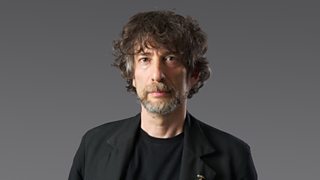Is Mindfulness Meditation Dangerous?
For a new series of , Jolyon Jenkins investigates whether meditation can do you more harm than good. What has he discovered?
Are you sitting comfortably? Close your eyes. Take a few moments to settle down. When you are ready, pay attention to your breath. Simply notice how it moves in and out of your body, as you inhale and exhale. If your mind wanders, as it will, simply note the thought but dismiss it gently, and bring your attention back to the breath. As you carry on doing this, focusing your attention on the present moment, your mind will calm itself, and stress and anxiety will reduce. Do this regularly, and you will achieve greater focus and creativity, peace of mind and wellbeing, and better relationships.

Or so it is claimed. Mindfulness meditation especially has become huge – not just for eastern mystics, western hippies and alternative healers. It’s something your GP might suggest. There are apps. It’s claimed to be effective as a treatment for mental illness, but also something that anyone can benefit from, even if they are well. And surely, sitting quietly and breathing couldn’t do any harm?
That's what Suzanne (not her real name), a French woman in her 20s thought. Just over a year ago, she decided to go on a silent meditation retreat in Manchester. As meditation goes, it was pretty hardcore. 10 days straight. No talking or eye contact were allowed, even when the daily sessions were finished. Everything was OK until the seventh day. But then she had a panic attack. “It just felt like my brain literally exploded,” she told me: “Then I felt like I was completely separated from my own body.” She talked to the teachers, but they told her to carry on meditating.
At the end of the course, she made her way, with difficulty, back to France, where she effectively collapsed in her mother’s house. “I tried to go on with my life but it was impossible. I could not get out of bed anymore, I could not eat. I was having symptoms of terror and panic. I had a lot of fear and I had ‘depersonalization’ - that’s basically when you look at yourself in the mirror and you’re unable to recognize yourself - and ‘derealization’, which is when you look at the world around you and it seems unreal.” She was admitted to a psychiatric hospital and given anti-psychotic medication. A year later, she is still on the drugs. She is much better but, she says, “I still have a long road ahead of me.”

Suzanne’s case is extreme but maybe not as unusual as you might think. I spoke to a number of people who had apparently been in good mental health before they tried meditation, but had severe crises during and after it.
Nor is it only people who go on intense meditation courses who have these problems. Tim Lomas, a London psychologist, recently published an academic paper about men who had been doing part-time meditation for non-clinical reasons. While most of them benefited from it, a quarter of them had encountered what Lomas calls “substantial difficulties”, including “challenging experiences of the self” and a “frightening dissolution of identity”. For some, mindfulness “made them aware of their distress but unable to deal with it, so that they found that meditation was “not only unhelpful but counterproductive”.
Lomas is no enemy of meditation. Indeed, he told me that these experiences were “not necessarily good or bad”, and that one man who apparently felt “close to psychosis” after meditation not only came through it but found it “one of the most transformative experiences of his life”.
Another fan of meditation is Daniel Ingram, an emergency doctor in Alabama who also runs an online meditation forum with 5000 members. From Daniel’s point of view, strong experiences from meditation are exactly what you should expect, if you follow the theory of Theravada Buddhism. In that tradition there’s a phase of meditation called the “arising and passing away”, after which you get the “dark night” - and for some, the dark night is very dark.

“For an unfortunate few, it can be pretty extreme depression, micro-psychotic episodes, and psychotic depression, and can make people suicidal, and occasionally even kill themselves. It’s really amazing that somehow western science has largely missed this. Which is unfortunate, considering the large number of people who are now meditating in sufficient doses to cross the arising and passing away.”
Which is not necessarily that large a dose. “I mean, you should see the emails I get,” says Daniel. “There’s a lot of this out there. And, it’s not just people who are going on long intense meditation retreats. I know plenty of people who have crossed into this territory spontaneously, including a number of family members, I know someone who ran into it on the way home from a yoga class and wrecked their car. They drove it straight into a telephone pole. I get all kinds of calls from people who said, ‘I just did a mindfulness-based stress reduction course. And all of a sudden, I’m having these crazy experiences’.” Is this likely to increase as mindfulness and mediation become more fashionable, I asked him? “Oh, yes. I would say it’s nearly guaranteed.”
And if you’re part of a religious tradition which has a meditative component – and lots do – then you might accept these difficulties as part of the road to enlightenment. But what’s curious is the way that a spiritual, contemplative practice has been turned into a quasi-medical treatment, or even just part of a vague lifestyle choice. Meditation has the potential to turn your life upside down. It might be good - or it might be far more than you bargained for.
.
More from Seriously...
-
![]()
Why have fakes and fantasists always fascinated us?
-
![]()
The writer and academic has a consultation with a legendary hair colourist.
-
![]()
The team of recovering addicts who made their mark on cinematic history.
-
![]()
Mao's Little Red Book Goes West
David Aaronovitch on how an Eastern political tract became a Western icon.
-
![]()
David Bowie's interviews reveal his humour, passion and determination to succeed.
-
![]()
Broadcaster Dotun Adebayo revisits his youthful obsession with James Dean.
-
![]()
Did Nazi leader Hermann Goering have a brother who saved innocent lives from the Holocaust?
-
![]()
A selection of great female authors who have radically altered the genre.
-
![]()
Dream away those mid-winter blues by pondering our selection of fantasy idylls.
-
![]()
Mat Fraser meets the former striptease stars back on the stage in their 70s and 80s.
-
![]()
The legendary radio maker recommends seven great documentaries for Seriously...
-
![]()
A poetic retelling of the Orpheus myth, from the celebrated writer Neil Gaiman.
-
![]()
An aspiring singer-songwriter meets the man who predicted the demise of the music industry decades ago.
-
![]()
What have you learned from our documentaries? Try our fiendishly difficult quiz...
-
![]()
Kellie Redmond explores Disney's fascinating contribution to the war effort.
-
![]()
The Simpsons star, satirist and actor reflects on the flood that devastated his home town of New Orleans.
-
![]()
Meet five codebreaking women who helped beat the Nazis and are still alive to tell their tales.
-
![]()
Seven reasons to love the modern melodic drum that creates a haunting tone.
-
![]()
The award-winning writer on porpoise dissections, stranded whales and beached dolphins.



















